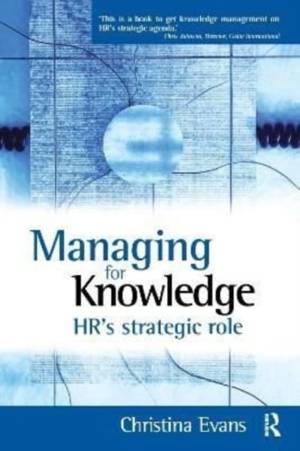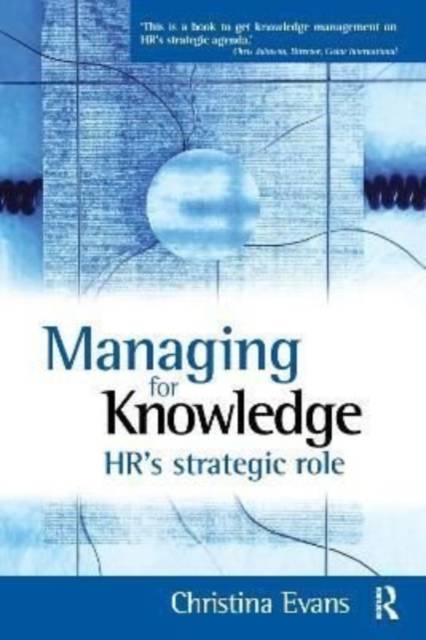
- Afhalen na 1 uur in een winkel met voorraad
- Gratis thuislevering in België vanaf € 30
- Ruim aanbod met 7 miljoen producten
- Afhalen na 1 uur in een winkel met voorraad
- Gratis thuislevering in België vanaf € 30
- Ruim aanbod met 7 miljoen producten
Zoeken
€ 221,95
+ 443 punten
Omschrijving
Whilst there are many books on knowledge management there are few aimed directly at HR practitioners and the critical role that they can play in building a knowledge-centric culture. This practical book draws on the author's own experience, as well as that of leading-edge Human Resource and Knowledge Management practitioners (including Linda Holbeche, Elizabeth Lank, and David Snowden), each of whom recognise that building a knowledge-centric culture cannot be achieved through technology alone. It covers areas such as: * Defining the key ingredients of a knowledge-centric culture * The changing structures, roles and responsibilities needed to create a knowledge-centric culture * HR's unique contribution to building a knowledge-centric culture, together with practical steps for getting started on the KM journey and for keeping the momentum going * Tools and techniques for: opening up a dialogue about why knowledge management is crucial for business and personal success; knowledge mapping; encouraging and facilitating knowledge sharing, as well as ways of identifying key knowledge players * How to help your organisation reframe its assumptions about learning in the knowledge economy * How to ensure that your HR practices are knowledge aligned
Specificaties
Betrokkenen
- Auteur(s):
- Uitgeverij:
Inhoud
- Aantal bladzijden:
- 296
- Taal:
- Engels
Eigenschappen
- Productcode (EAN):
- 9781138155848
- Verschijningsdatum:
- 7/12/2016
- Uitvoering:
- Hardcover
- Formaat:
- Genaaid
- Afmetingen:
- 156 mm x 233 mm
- Gewicht:
- 452 g

Alleen bij Standaard Boekhandel
+ 443 punten op je klantenkaart van Standaard Boekhandel
Beoordelingen
We publiceren alleen reviews die voldoen aan de voorwaarden voor reviews. Bekijk onze voorwaarden voor reviews.











